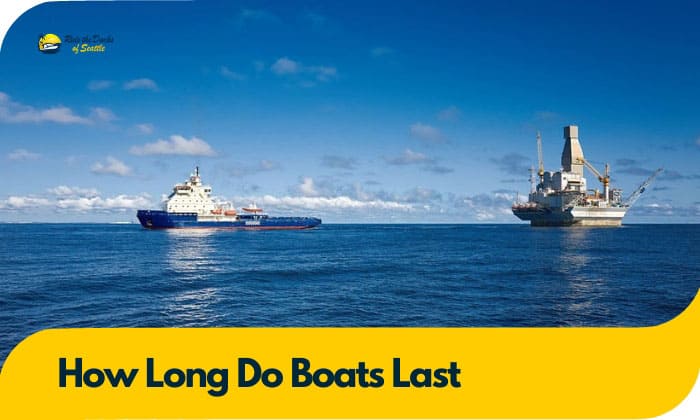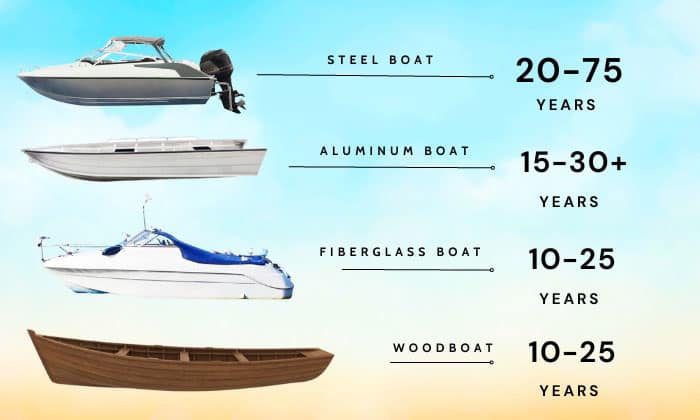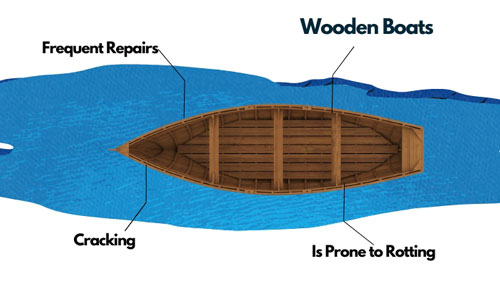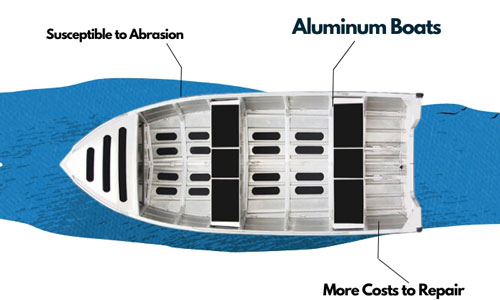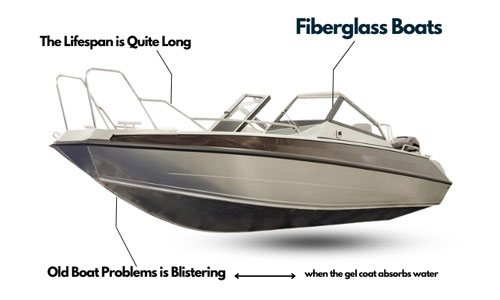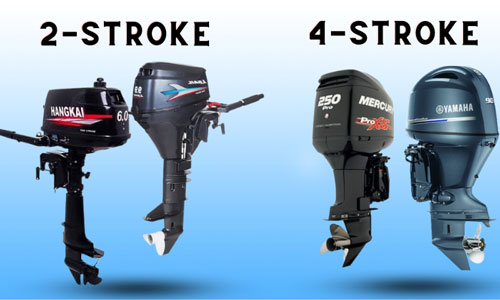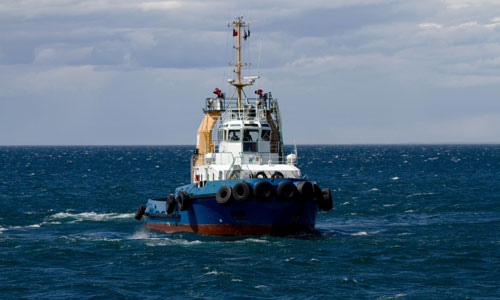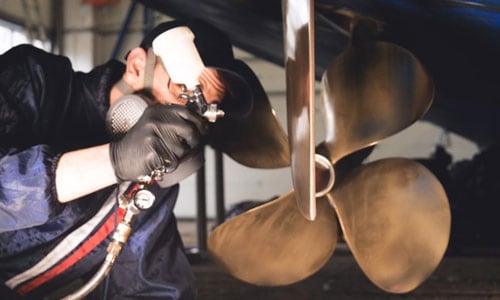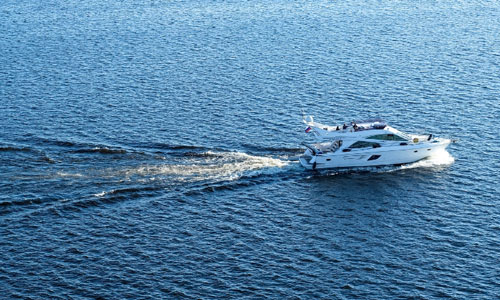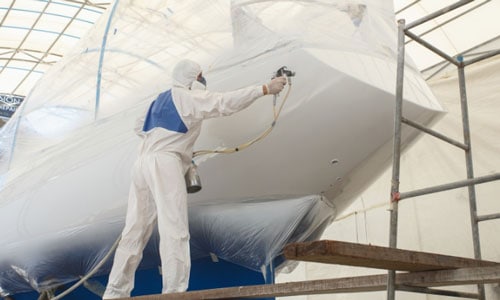If you are planning to invest in a boat, it is best to know which type to get. Various factors play into this such as the size, the model, and features of the water vessel.
So, “How long do boats last?” On average, boats last between 10 to 20 years. The longevity depends on the type or on the materials used to construct them such as wood, aluminum, and fiberglass.
This guide provides information and tips to help you choose the perfect boat.
Table of Contents
What is the Average Boat Lifespan?
The average lifespan of water vessels relies on the materials used in boat construction. Below is a table that gives an overview, as well as their advantages:
| Material | Average Lifespan | Advantages |
| Wood | 10-25 years | Easy to work with; some types are impact-resistant, has a classic look |
| Aluminum | 15-30+ years | Lightweight, ideal for small boats like pontoon boats, suitable in freshwater, with less chance of damage as it is not often exposed to saltwater compared to large boats |
| Fiberglass | 10-25 years | Ideal for small and large boats like bass boats, can withstand rough seas, and looks best with the glossy finish |
| Steel | 20-75 years | Predominantly used, can withstand in fresh and in salt waters |
What Affects a Boat’s Longevity?
There are several factors that can affect the durability and longevity of your boat. It all relies on how you maintain it, and how much you are willing to invest in its repairs. Here are some factors to look out for:
1. Type of Material
The material of the boat can determine its longevity. Here is a short guide on what material can gain damage on the boat:
- Wooden boats require frequent repairs–ultimately, time-consuming. After all, it is prone to rotting, cracking, and swelling given its elastic properties.
- Aluminum boats are susceptible to abrasion as it is more malleable than steel. While minor dents are fixable, major ones, including scratches can require more costs to repair.
- The lifespan of fiberglass boats is quite long. Since it has a gel coat, it reinforces the boat’s strength. However, one of the common old fiberglass boat problems is blistering, which occurs when the gel coat absorbs water, resulting in dome-like structures that are difficult to remove and look unusual on the hull.
2. Type and Age of the Engine
Typically, there are two types of engines: Two-Stroke and Four-Stroke.
- The former has one chamber and is cheap and lightweight but not environmentally friendly.
- Meanwhile, the 4-stroke has input and exhaust valves and is quiet but heavy and can move slower.
Aside from the type, the age of the engine affects the boat’s performance. If you live nearby beaches, lakes, or other bodies of water, you will tend to use your boat more often. Naturally, the more you use it, the more the engine wears off.
3. How the Boat Was Used
Boat owners invest in these vessels for leisure or recreational purposes. This includes water skiing, cruising, fishing, and scuba diving. Such activities involve several starts, stops, and going on idle modes. Doing all these put a strain on your boat engine.
It is natural wear and tear–how many hours or how many years you use your boat for these activities. However, this doesn’t mean you should avoid using it. It would help if you moved the boat for long sprints.
4. How Well is the Maintenance of the Boat
All boats, regardless of the material, require maintenance. However, the extent of maintenance depends on the type. Make sure you know what to look for and how to clean or repair the parts.
If you are unsure, always go back to the boat maintenance manual or consult an expert from supply stores or manufacturing companies.
Tips for Extending a Boat’s Lifespan
While different materials can give you an idea of how long your boat will last, proper maintenance can extend its longevity. Below are some helpful tips:
1. Invest in the Right Boat for You
Before scouring for water vessels, make sure to know how to use them. Most likely, it is for leisure purposes. Some brands and models are ideal for light cruising, while some are more suitable for extreme water activities such as water skiing, wakeboarding, and rafting.
If you are going for a second hand boat, you must check its condition thoroughly. Aside from inspecting its durability and the exterior for any abrasions and dents, examine the parts like the engine, wiring, navigation system, etc. There may also be damages and cuts.
If you do see some, it doesn’t necessarily mean you have to back out of the deal. The damage may be easily repaired with the right tools, skills, and knowledge. If you are uncertain, always consult the supplier or manufacturer.
2. Repair Damaged Parts Right Away
If you notice any cracks, rot, dents, holes, and abrasions, fix or replace them immediately. While they may seem small, they can worsen over time.
This applies especially to broken parts and hardware. A single error can cause your boat’s system to fail and lead to irreparable future damage. To avoid this, always have an emergency repair kit with you on your trip.
3. Keep Your Oil Fresh
Much like how you keep your car with clean oil, change your boat’s oil as often as recommended by the manufacturer. Keeping it clean helps your engine work better and longer.
Frequently Asked Questions (FAQs)
How old is too old for a boat?
While some boats can last up to 30 years, others can go up to 50 years. This is considered “too old” for a boat. Some people may take these boats as part of a collection, but no longer for recreational use.
If the boat is too old, especially for its type or model, then don’t expect people to buy it off of you easily. This is because the engines are old as well, and purchasing an entirely new boat is a better investment than having to replace the components of the old boat.
What is the most common cause of boat breakdowns?
Running out of fuel
During your sailing trip, the boat getting sluggish or having strange vibrations might mean running out of fuel. To avoid this, make sure to check everything before going: check your fuel levels, inspect your engine components, and clean your fuel filter before heading out on your trip.
Engine is overheating
Engine cooling loop might be the problem, so look out for rising temperatures and back off the throttle if needed, then wait for cool-down. Another reason might be a broken drive belt, so check for nicks or chinks on the pulleys before sailing or get spare belts.
Boat is filling with water
When your water vessel starts feeling “heavy,” check your hoses, clamps, and the boat’s hull. It is either there is damage on these parts or there is something stuck like plastic that makes it difficult to move. Make sure to plug back the drain hose as well.
Conclusion
“How long do boats last?” is what boat enthusiasts should know before purchasing one. Learning the lifespan and how to extend a water vessel’s longevity is helpful.
By knowing how long boats typically last and learning how to properly maintain and care for them, you can choose wisely and invest in a water vessel that aligns with your needs and expectations, ensuring that the investment long-lasting as boats can serve you for years to come.

Ten years of enjoying countless trips on boats never made me love them any less! So I am here to put all those experiences into good use for other boaters who want to have a safe and fun trip with their friends and families.

